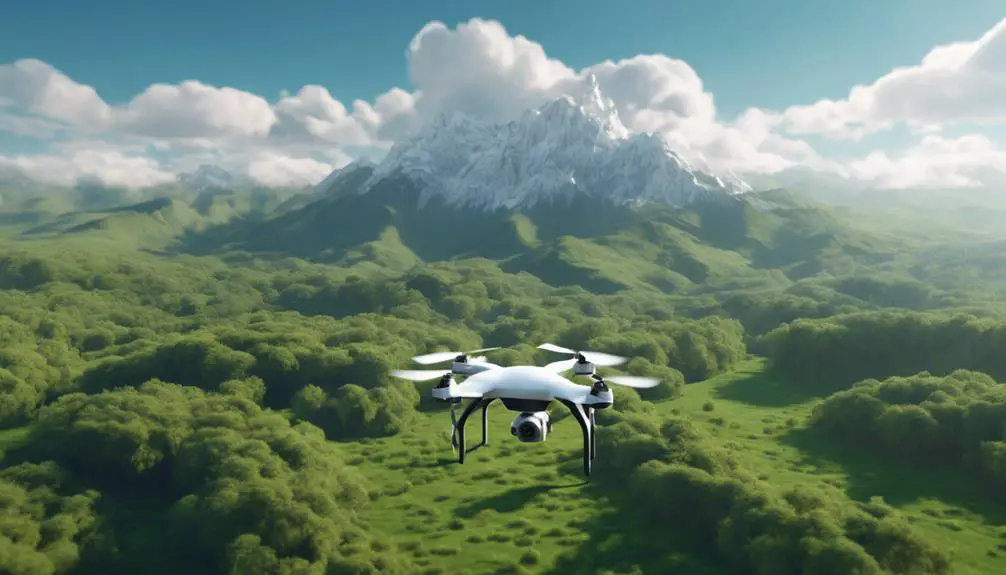Whether you need a license to fly a drone depends on how you plan to use it. If you’re flying for fun with a drone under 0.55 pounds, you don’t need a license, but you do need to register it with the FAA. However, if you want to use it for commercial purposes, you’ll need a Remote Pilot Certificate, which involves passing a written test. Always keep your drone within sight and avoid restricted airspace, no matter the purpose. Stay tuned, and you’ll discover more about specific regulations and tips for flying safely and legally.
Overview of Drone Regulations
Maneuvering the world of drone regulations can be tricky, but understanding the basics is essential if you want to fly legally and safely. First, it’s vital to know that regulations vary by country and sometimes by region, so always check local rules. Generally, you’ll need to register your drone if it exceeds a certain weight, typically around 0.55 pounds in the U.S. If you plan to fly for commercial purposes, you’ll likely need a Part 107 license, which involves passing an FAA test. Keeping your drone within visual line of sight and avoiding restricted airspace are key principles. By staying informed and compliant, you can embrace the freedom of flight without the stress of potential legal issues.
Recreational Drone Use
If you’re flying a drone for fun, there are specific guidelines you need to follow to stay within the law. First, your drone must weigh less than 55 pounds, and you’ve gotta keep it within your visual line of sight. Fly it below 400 feet and avoid restricted airspace, like near airports or military bases. You also shouldn’t fly over people or moving vehicles, as safety is key. Register your drone with the FAA if it’s over 0.55 pounds. While you’re enjoying the freedom of flight, don’t forget to respect others’ privacy and property. By adhering to these rules, you can release your creativity and explore the skies while keeping things safe and legal. Happy flying!
Commercial Drone Licensing
Flying drones for commercial purposes requires obtaining a specific license, known as the Remote Pilot Certificate, issued by the FAA. This license gives you the freedom to use your drone for various business ventures, whether it’s aerial photography, surveying, or even delivery services. To get this certificate, you’ll need to pass a written test that covers important regulations, airspace classifications, and safety protocols. Don’t worry; it’s designed to guarantee you can fly safely and responsibly. Once you earn your certificate, you can enjoy the perks of commercial drone flying while adhering to the rules that keep everyone safe. So, if you’re ready to turn your passion into profit, getting licensed is your first step to soaring high in the commercial drone world.
Age and Training Requirements
To operate a drone legally, you need to meet certain age and training requirements set by the FAA. First, you must be at least 16 years old to fly a drone for commercial purposes. For recreational flying, there’s no specific age limit, but if you’re under 13, you’ll need an adult to supervise. As for training, you’ll need to pass the FAA’s Aeronautical Knowledge Test to obtain a Part 107 Remote Pilot Certificate. This guarantees you understand the rules and safety measures, helping you enjoy the freedom of flying without risking safety or legality. So, get ready to soar, but remember that knowledge and responsibility are key to keeping your flying adventures fun and lawful!
National Vs. Local Regulations
Maneuvering the maze of national and local regulations is vital for anyone looking to operate a drone legally. You’ve got to be aware that rules can vary considerably depending on where you are. National guidelines set the baseline, but local laws can add extra layers. Imagine the freedom of flight, but also consider:
- Local parks that restrict drone use
- Breathtaking coastlines with specific no-fly zones
It’s essential to research both levels of regulation to guarantee you’re not just flying high but flying smart. Ignoring local ordinances can ground your freedom, so stay informed and keep your drone adventures compliant across the board. Enjoy that sky, but respect the rules!
Consequences of Non-Compliance
Failing to comply with drone regulations can lead to serious consequences, including hefty fines and potential legal troubles. You might think flying your drone without a license is harmless, but it can cost you dearly. Depending on where you live, fines can range from hundreds to thousands of dollars. Additionally, if you’re caught repeatedly violating rules, you could face even stricter penalties, including criminal charges. This isn’t just about money—your freedom to fly could be at stake, with possible restrictions on your ability to operate any drone in the future. So, while the skies may seem open, it’s essential to know the rules to keep enjoying that freedom without fear of repercussions. Stay informed, stay compliant, and keep flying!

